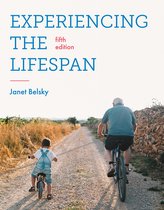2018/ 2019
Developmental
Psychology
, CHAPTER 1
pp . 2- 33
The people and the field
DEVELOP Researchers and practitioners whose professional interest lies in the study
-
MENTALISTS
of the human lifespan .
t.WTIOWEAREANDWHATWES.TW#
LIFESPAN DEVELOPMENT -
The scientific study of development through life .
CHILD DEVELOPMENT The scientific study development from birth adolescence
-
of through .
GERONTOLOGY The scientific study of the and older adults
-
aging process .
ADULT The scientific study of adult life
-
DEVELOPMENT .
D Lifespan development
↳ is multidisciplinary
D e g neuroscience nursing psychology and social policy
-
- .
, , ,
↳ explores the predictable milestones on our human journey
↳ focuses on the individual differences that give spice to human life
→ e. g .
What causes these differences ?
↳ explores the impact of life transitions and practices
-
D normative transitions ( e.g . retirement )
-
D non -
normative transitions ( e.g . divorce ,
death of a child ,
etc . )
NORMATIVE TRANSITIONS Predictable life development
changes that occur during
-
.
NON NORMATIVE TRANSITIONS Unpredictable atypical life
changes that during development
-
or occur
-
.
CONTEXTS OF Fundamental markers including cohort socioeconomic status and
-
, ,
,
DEVELOPMENT gender ,
that shape how we develop throughout the lifespan .
2.SE#INGTHECONTEXT2.ATHE1MPACTOFCOH0RT-
The
-
COHORT age group with whom we travel through life .
→ Our cohort has a major impact on our adult life
BABY BOOM COHORT The born between 1946 and 1964
huge age group
-
.
D Childhood and adolescence as we know it today is a
young development in
human history
EMERGING ADULTHOOD The phase of life that begins after high school lasts through the
-
,
late twenties
,
and is devoted to constructing an adult life .
, AVERAGE UFE EXPECTANCY A person 's fifty fifty chance at birth of living to given age
-
-
a .
-
D used to be much lower
TWENTIETH CENTURY
-
The dramatic life expectancy that occurred
increase in average
-
LIFE EXPECTANCY during the first half of the twentieth century in the developed
REVOLUTION world .
MAXIMUM LIFESPAN
-
The biological limit of human life ( about 105 years ) .
D The extension of the lifespan changed our ideas about every life stage
YOUNG -
OLD
-
People in their sixties and seventies .
OLD -
OLD -
people age 80 and older .
D The internet and income inequalities influence and define our lives
INCOME INEQUALITY The gap between the rich and poor within a nation specifically when
-
; ,
income inequality is wide ,
a nation has few very affluent residents
and a mass of disadvantaged citizens .
UPWARD MOBILITY Rising social class and/or economic status from 's childhood
-
in one .
→
Today ,
children only have a 50150 chance
2.LT/tEChlPACT0FS0C10EC0NOhlKSTAT#
SOCIOECONOMIC A basic marker educational
referring to status and
-
STATUS on the ,
especially , income rungs .
-
D major impact on development at
every life stage
DEVELOPED WORLD
-
The most affluent countries in the world .
-
D high life expectancy ,
small income inequality access to good education and
,
modern medical care
DEVELOPING WORLD The impoverished countries of the world
-
more .
→ least -
developed countries : no indoor plumbing ,
clean running water ,
or access to education
2.3THEIMPACTOFCULTUREANDETHNKIICOLLEC.TW
1ST CULTURES -
societies that prize social harmony ,
obedience ,
and close family
connectedness over individual achievement .
INDIVIDUALISTIC CULTURES -
societies that prize independence , competition ,
and personal success .
→ western Nations
, QLITHEIMPACTOFAENDERD
Our set / gender defines many aspects of our life
↳ we behave differently and are treated differently
3.THEORIES-LENSESFORLOOKINAATTHELIFES.ph#
3.ABEHAUIORISU.THEOR.la/NALBL0CKBUSTER''NUR
Wentling
TRADITIONAL BEHAVIORISM
-
The original behavioral world view that focused on
" "
charting and modifying only objective visible behaviors .
-
D Watson and B. F- Skinner
3.1.AEXPLORINGREINFORCEMENTOPER.fi
NT CONDITIONING According to traditional behaviorists the of learning
-
,
law
that determines any voluntary response .
→ Responses that are reinforced are learned others extinguished ( extinction )
,
3.A.2TAKlNaADtFFERENTPERSPECTWE:EXPL0RINaC0a
COGNITIVE BEHAVIOR IS U A behavioral that emphasizes that people learn
-
worldview
( SOCIAL by
LEARNING THEORY )
watching others and that our thoughts about the
reinforcers determine our behavior . Cognitive behaviorists
focus on
charting and modifying people 's thoughts .
-
D Albert Bandura
MODELING Learning by watching and imitating others
-
.
→ we tend to model people who are nurturing and whom we categorize
as being like us
SELF EFFICACY According to cognitive behaviorism internal
-
-
,
an
belief in our competence that predicts whether
we initiate activities or
persist in the face of failures
,
and predicts the goals we set .
3.2PSYCHOANACYTKTHEORy:EARLYCHkDHOODANDUNC0NSCi
humic
D
Sigmund Freud transformed the way we think about human beings
↳ psychoanalytic theory
-
D roots of emotional problems lie in repressed feelings from early childhood
D id and
ego superego
-
, ,
↳ Human beings are irrational
life
↳
Lifelong caregiving during
'
mental health depends on our parents early
Self to
↳ -
understanding is key living a
fulfilling adult life






